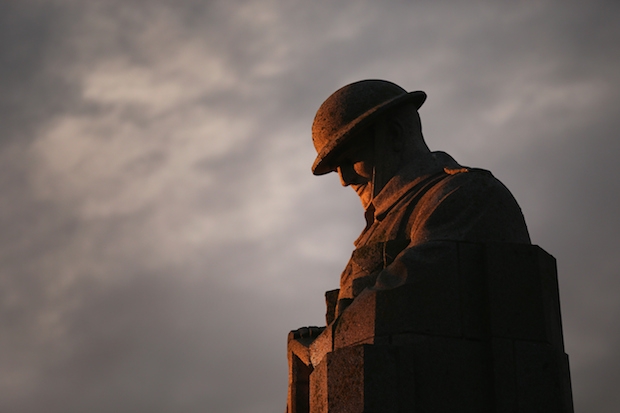From The Spectator, 17 October 1914:
To all British people here and overseas by far the most delightful news of the week is that of the landing of the Canadian contingent at Plymouth on Wednesday afternoon. As may be imagined, the reception given to the Canadian troops was of the heartiest, and the Canadians will know that it was no mere local outburst of enthusiasm. At this moment there is a sense of pride in and gratitude towards the Dominion in the heart of every British man and woman in the country. We should be stone if we were not touched by a pledge “fraught with a pathos so magnificent.” The coming of the Canadians would be notable if there were nothing more behind it, but we all know that there are a hundred thousand men behind it, and “more if necessary.”
Though the Canadians have been at sea nineteen days (so difficult and so anxious, and therefore necessarily slow, is the work of guarding and convoying a great fleet of transports), and though also the weather was very rough, the Canadian soldiers arrived in the best possible spirits. The ships came up the Sound with the men singing and cheering. While the regimental bands on the decks were busy playing popular airs, the men on shore, we need hardly say, were singing “It’s a long, long way to Tipperary.” On Thursday the work of disembarkation began. The correspondents, besides noting the splendid physique of the men, note also their wonderfully full equipment. There are thousands of horses.
We wish we could have welcomed the Canadians with better weather—something more like their own glorious Indian summer. The men, we are told, have only one regret, and that is that they were not taken at once to the seat of war. They have, however, plenty of Boer War veterans among them, and these will no doubt impress upon the younger and less experienced how needful it is that they should have a good dose of training before they go to the front. They want this on two grounds—first, in order to get them into condition after their long voyage, and secondly, in order to supplement the training they have had in Canada, which was necessarily short. They will soon begin to realize that it is not enough for troops to be able to shoot or to know their drill and regimental training. They must also thoroughly learn brigade and divisional work. Unless this is done, they will be seriously handicapped at the front.






Comments